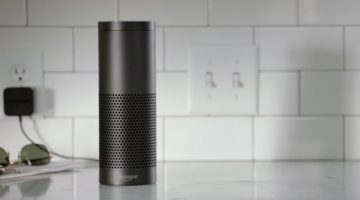Columnist Stephanie Self can’t get on the e-reader bandwagon. Despite their function as a convenient portable device, they take away the whole experience of reading and shopping for books. Photo illustration by Alexa Solis /Nevada Sagebrush
by Stephanie Self
My 15-year-old sister handed my newly received copy of the first season of “Girls” on DVD back to me. She had allegedly been reading the back of the case, curious about the vague title of the series. However, she had only looked at the extensive description for maybe 30 seconds.
“That was quick,” I said, skeptical that she had actually finished it.
“Oh, I didn’t read the whole thing,” she listlessly replied.
“Why not?”
“I don’t know. I got bored.”
“Again I say, that was quick.”
My sister’s interactions with text are not the same as the kinds that I had when I was her age. It’s even more unlike what our parents experienced when they were young. I’m only eight years older than her, but whereas I grew up along with the progressively invasive presence of technology in everyday life, she was born into it. In her case, most everything she does involves her cellphone, tablet or laptop. I’ve noticed that she almost has an aversion to books, but only tangible books, not the content that she would otherwise get through one of her various devices.
When I was a kid, I spent a lot of time reading and writing. That meant reading tangible books and writing with a pen in a notebook. Today, most every writer I know (if not all of them) types on a computer while they write. Increasingly, people are using e-readers, mainly Amazon’s Kindle and Barnes and Noble’s Nook, instead of reading physical books. It’s an uncomfortable shift for me as someone who still prefers to write drafts in a notebook and hold, touch and feel a book when I read it. I actually got to see (and to an extent am still seeing) the change from reading physical books to e-readers.
And I hate it.
I try to use that word sparingly, but in this case it’s true. (Don’t worry; the irony of me making this statement in a printed newspaper is not lost on me.) I get why e-readers are attractive: they give you instant access to books so that you can read that next book in the series as soon as you finish the previous one, they allow you to store 50 e-books at a time in one portable device so you can read anything you want at any time and e-books are often cheaper than printed ones.
I mean, who hasn’t had the problem of needing to carry the 10 books you’re leisurely reading at the same time? I know just taking a trip to a coffee shop always becomes more stressful when I have to whittle my book selection down to, say, two books. Life is hard, man.
Granted, being in college does mean that students are reading a lot of material at the same time. I remember an old boyfriend of mine hauling a dangerously heavy backpack around, stuffing it full of his physics and math textbooks, which, to be frank, was a bitch. So, for him, having a tablet or e-reader of some kind was a great solution.
But as an English major who must constantly read an exorbitant amount, I would not want to read the likes of Michel Foucault and Jean Baudrillard and Eve Kosofsky Sedgwick on an e-reader. Trying to comprehend explosion of discursivity or epistemology of the closet on an e-reader? No, thank you. And this was confirmed a couple weeks ago.
I randomly ended up at Best Buy recently, and I wandered into their section of e-readers to see if maybe I was missing something. When I began trying out the Kindle, I was having to choose a title from a list (without covers) and turning pages using buttons and the font was in Arial and what the hell was going on?
I practically shuddered. It felt wrong, like I was betraying every book I’ve ever read. I wasn’t even looking at a particularly difficult book: it was a sample of “Girl with the Dragon Tattoo,” a book I’ve read before.
The way I see it is that reading a book is an experience, and reading something off of a screen feels more like simply taking in information. The same goes for shopping for books. Browsing Amazon isn’t nearly as satisfying as going to a bookstore and actually looking at the vast selection of books available on the shelves.
All of my reasons aside, I know that my hatred for e-readers is not enough to win this battle. My sister’s generation is already paving the way to a world in which we consume most of our media through images and video. E-readers are bridging the gap between technology and books, which, while useful and convenient in some ways, is not what reading has ever been about for me.
I want to touch the pages, break in the spine, write in the margins (using a pen), see the different fonts and cherish the cover art. It is an idealistic and romantic way of enjoying books, but it’s a way that I will try to keep alive as long as I can.
Stephanie Self studies English. She can be reached at self@http://archive.archive.nevadasagebrush.com.












